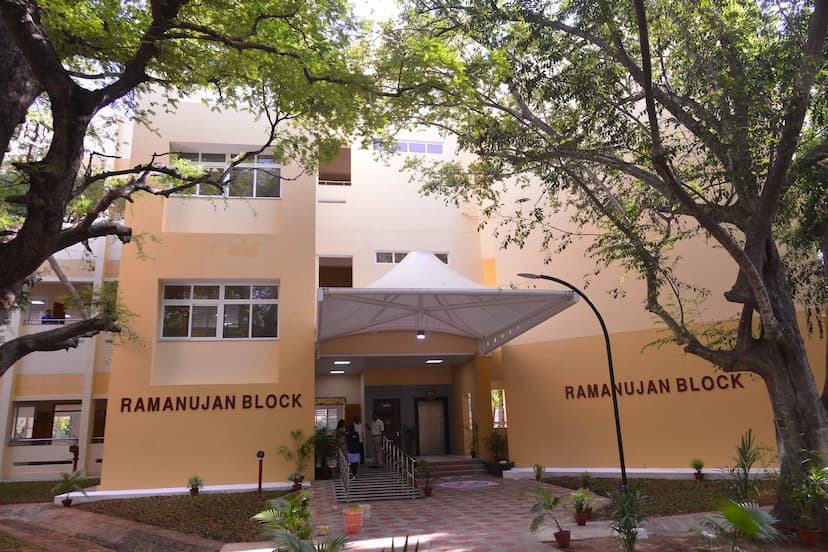IIT Madras to collaborate with great IBM for research

IIT Madras and IBM will collaborate with regards to quantum computing education and research.
What will the collaboration do? It will provide IIT Madras faculty, researchers and students with access to IBM’s quantum systems and tools over IBM Cloud to accelerate joint research in quantum computing, and develop curricula to help prepare students for careers that will be influenced by this next era of computing, across science and business.


IBM will provide the learning resources, tools, and systems access needed by the faculty and students.
India has witnessed a huge spurt of activity in the quantum science and technology domain over the last few years, backed by Government initiatives including the ‘Quantum Enabled Science and Technologies’ (QuEST) program and the National Mission on Quantum Technologies and Applications (NMQTA), say sources from IIT Madras.
The Metropolitan Area Quantum Access Network (MAQAN), and the Centre for Field Programmable Photonic Gate Arrays (FPPGAs) are large initiatives at IIT Madras, supported by the Ministry of Electronics and Information Technology (MeitY), Government of India.

Speaking about the unique aspects of the collaboration of IIT Madras and IBM Dr. Gargi Dasgupta said Quantum computing is fast emerging as one of the disruptive technologies of our times.
Dr. Gargi Dasgupta is director of IBM Research India.
He said IBM is committed to supporting educators like IIT Madras who are shaping the next generation of quantum innovators through various initiatives and programs.


Professor Anil Prabhakar of Department of Electrical Engineering at IIT Madras spoke on importance of Quantum Technology.
Quantum computing offers us the opportunity to solve computationally intractable problems, he said.
Also read ‘Lucknow University admission 2021 is open. Students willing to study UG or PG courses can apply till June 30‘

We have played a leadership role in the indigenous development of quantum key distribution (QKD), having demonstrated distributed phase reference QKD at distances up to 150 km, said Professor Anil of IIT Madras.
Such QKD protocols form the building blocks for quantum networks that will secure our communications, and also enable new paradigms such as photonic quantum computing and distributed and blind quantum computing, he said.
Our demonstrations are backed by a growing portfolio of patents on technologies such as quantum random number and heralded photon generation, he said.

IIT Madras fosters a collaborative environment under a cluster of projects focused on Quantum Communication and Computation, Quantum Information Theory and Quantum Materials, boosting the research infrastructure in these areas, and funding international conferences and collaborations.
Courses such as Quantum Integer Programming, conducted alongside a similar course at the Tepper Business School, Carnegie Mellon, emphasize the advantages of hybrid quantum computing to areas as diverse as bin packing, image classification, channel decoding, and quantum state tomography.
The Quantum Computing Lab at IIT Madras will host courses for undergraduate and postgraduate students and better prepare for a career in quantum science and technology.
Through its international collaborations with universities and with the support of industry partners such as IBM, the students gain opportunities to apply these skills to advanced theoretical and practical applications of quantum computing.
About IIT Madras
IIT Madras was established in 1959 by the Government of India as an ‘Institute of National Importance.’
The activities of the Institute in various fields of Science and Technology are carried out in 16 academic departments and several advanced interdisciplinary research academic centres.
The Institute offers undergraduate and postgraduate programmes leading to B.Tech., M.Sc., M.B.A., M.Tech., M.S., and Ph.D., degrees in a variety of specialisations.
IIT Madras is a residential institute with more than 580 faculty and 9,500 students. Students from 18 countries are enrolled here.
Read More – Top 10 easiest exams in India

IITM has been ranked No.1 in the ‘Overall’ Category for the second consecutive year in India Ranking 2020 released by National Institutional Ranking Framework, Ministry of Education, Government of India.
The Institute has also been ranked No.1 in the ‘Engineering Institutions’ category in the same Rankings for five consecutive years – 2016, 2017, 2018, 2019 and 2020.
It was also adjudged as the ‘Top innovative Institution’ in the country in Atal Ranking of Institutions on Innovation Achievements (ARIIA) in 2019 and 2020. ARIIA Ranking was launched by the Innovation Cell of Ministry of Education.
S Vishnu Sharmaa now works with collegechalo.com in the news team. His work involves writing articles related to the education sector in India with a keen focus on higher education issues. Journalism has always been a passion for him. He has more than 10 years of enriching experience with various media organizations like Eenadu, Webdunia, News Today, Infodea. He also has a strong interest in writing about defence and railway related issues.









